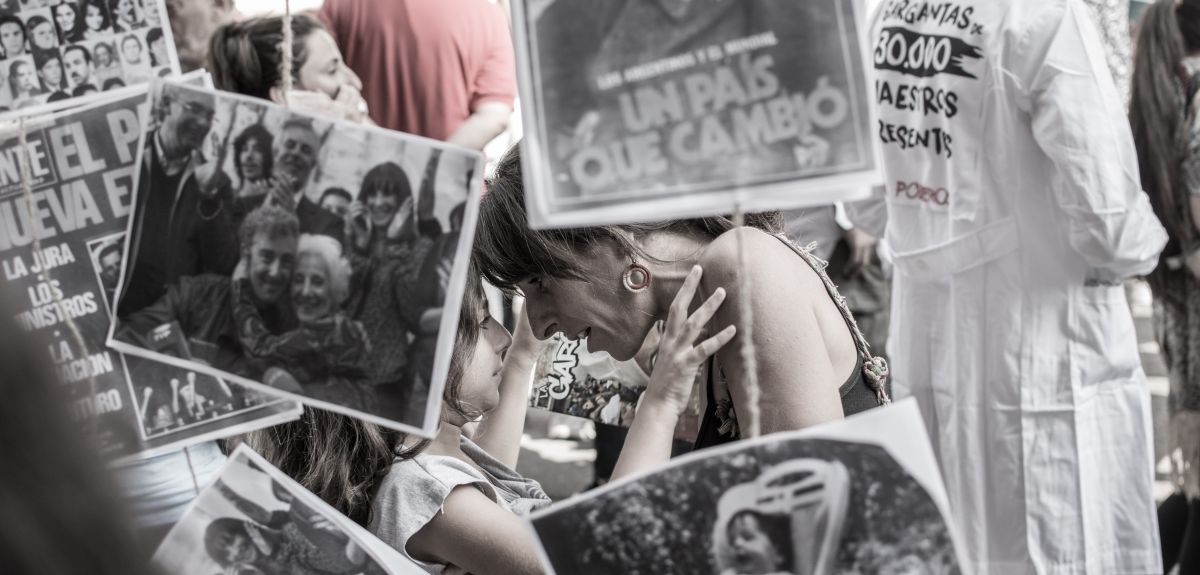
Image credit: Matias Jacobi / Unsplash
New Global South Visiting Fellow tackles relationship between literary studies and political activism
Analía Isabel Gerbaudo, Professor of Literary Theory and Didactics of Language and Literature at the National University of Litoral, Argentina, has been appointed as Global South Visiting Fellow at TORCH (The Oxford Research Centre in the Humanities).
The Global South visitor scheme, which sits in TORCH, is part of a wider aim to diversify the curriculum in Oxford’s humanities departments. The scheme is funded by the Andrew W. Mellon Foundation and is part of TORCH’s ‘Humanities & Identities’ series.
Dr Gerbaudo’s work tackles the difficult, charged and extremely topical question of the relationship between literary studies and political activism. The belief that practising criticism constitutes an important form of activism shapes the mission of the online literary journal that Gerbaudo founded in 2014, El Taco en la Brea, of which she remains the chief editor. It is also reflected in her most recent work as director of the independent publishing house Vera cartonera, linked to the ‘cartonero’ publishing movement which promotes literacy, diversity and social integration in Latin America by providing books at affordable prices. Dr Gerbaudo’s academic and professional work is produced outside the metropolitan context of Buenos Aires and is committed to geographical and social inclusion. She is currently researching the circulation of literary theory and Argentine literature during the last dictatorship and in the post-dictatorship period, especially with regard to questions of censorship, clandestine circulation and translation of texts, and underground reading practices. Gerbaudo is also an active translator and a committed mediator of Argentine literature and cultural politics in the global sphere.
Dr Gerbaudo said: ‘I would like to express my gratitude to those who have helped me develop and draw attention to a topic that I have been researching since 2006, the year I was admitted to the National Council of Scientific and Technical Research (CONICET). I study how Argentine literature and literary theory were taught in public universities in the years following the end of the military dictatorship. More specifically, I am concerned with the “fantasies of nano-intervention” that inspired the practices which my research has contributed to highlighting. Thanks again to all the people involved in the TORCH project for this opportunity.’
Dr Stefano-Maria Evangelista (English), Professor Laura Marcus (English) and Professor Benjamin Bollig (Medieval and Modern Languages) are sponsoring Dr Gerbaudo’s term at the University. While Dr Gerbaudo’s research has recently been published in the Journal of World Literature, her stimulating work remains very little known in Britain. This Global South Visiting Fellowship will provide her with a platform to share her work with English-speaking audiences both within Oxford and more widely, and to engage in ongoing debates in Oxford's Humanities faculties concerning disciplinary and interdisciplinary formations, literary translation, dissemination and the widening of the canon. Dr Gerbaudo’s expertise challenges the Eurocentric model of comparative literature by concentrating on Argentina as a key player in the global transmission of ideas and texts.
Dr Gerbaudo will be based at Oxford’s Faculty of Medieval and Modern Languages and Trinity College during Michaelmas Term 2019.